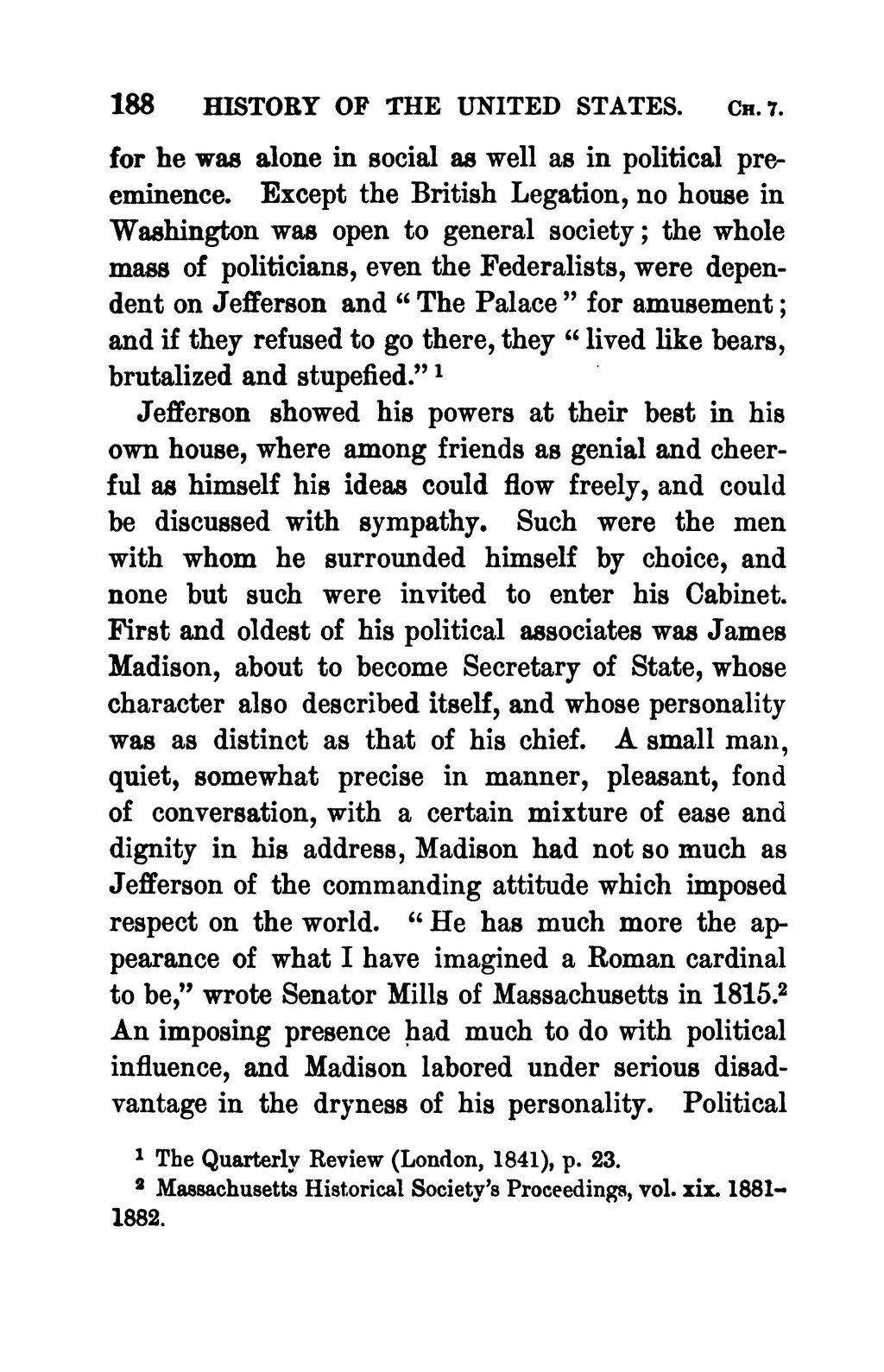for he was alone in social as well as in political pre-eminence. Except the British Legation, no house in Washington was open to general society; the whole mass of politicians, even the Federalists, were dependent on Jefferson and "The Palace" for amusement; and if they refused to go there, they "lived like bears, brutalized and stupefied."[1]
Jefferson showed his powers at their best in his own house, where among friends as genial and cheerful as himself his ideas could flow freely, and could be discussed with sympathy. Such were the men with whom he surrounded himself by choice, and none but such were invited to enter his Cabinet. First and oldest of his political associates was James Madison, about to become Secretary of State, whose character also described itself, and whose personality was as distinct as that of his chief. A small man, quiet, somewhat precise in manner, pleasant, fond of conversation, with a certain mixture of ease and dignity in his address, Madison had not so much as Jefferson of the commanding attitude which imposed respect on the world. "He has much more the appearance of what I have imagined a Roman cardinal to be," wrote Senator Mills of Massachusetts in 1815.[2] An imposing presence had much to do with political influence, and Madison labored under serious disadvantage in the dryness of his personality. Political
